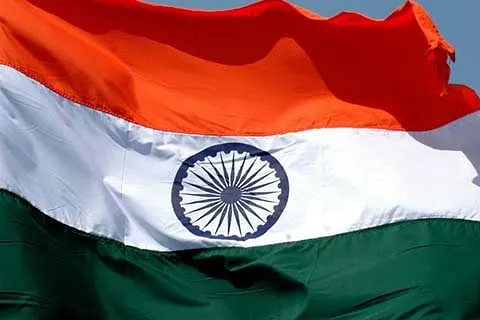New Delhi, Feb 4: The significant outcome of the second meeting between India and Maldives aimed at maintaining bilateral relations, seems to be working as India has decided to replace its military operators with civilian experts in the operation of two helicopters and a Dornier aircraft in Maldives.
The decision was reached during the second meeting of the India-Maldives High-Level Core Group held Friday in New Delhi, addressing concerns arising from the recent changes in the Maldivian government and developing strained relationships between the two countries.
According to a press release issued by the Ministry of External Affairs, both nations have agreed on mutually workable solutions to ensure the continued operation of Indian aviation platforms, providing humanitarian and medical evacuation services to the people of Maldives. Sources said that the security of these assets will be entrusted to Maldivian Défense personnel.
The press release from the Ministry of Foreign Affairs in Maldives stated, “Both sides agreed that the Government of India will replace the military personnel in one of the three aviation platforms by 10 March 2024, and will complete replacing military personnel in the other two platforms by 10 May 2024.”
During the meeting, both sides engaged in discussions on various issues related to bilateral cooperation, focusing on steps to enhance the partnership. The talks included expediting the implementation of ongoing development cooperation projects. The next meeting of the High-Level Core Group is scheduled to take place in Male’ during the last week of February.
Despite strains in the relationship, the meeting concluded on a positive note, allowing India to continue its programs and projects in Maldives.
The decision to establish the High-Level Core Group was initiated during a meeting between Prime Minister Narendra Modi and Maldivian President Muizzu at the COP28 summit in Dubai in December.
The strained relations between India and Maldives intensified as President Muizzu formally requested the withdrawal of all Indian military personnel by March 15. This move signals a notable shift in the nation’s foreign policy towards a more pro-China stance.
The current deployment consists of 88 Indian military personnel, primarily technical experts operating helicopters and aircraft, engaged in medical evacuations and humanitarian missions.
Internal Political Landscape Under Pressure
The internal political landscape in Maldives has become increasingly volatile, with opposition leaders vociferously criticizing President Muizzu and his government.
Facing opposition in the Maldivian Parliament and potential impeachment challenges, the president seeks legal recourse from the Supreme Court concerning recent amendments to Parliament’s standing orders.
These amendments, enabling opposition lawmakers to initiate impeachment proceedings, have generated controversy and placed the head of state under mounting pressure.
The root of the issue dates back to November when seven lawmakers resigned from Parliament to assume key positions in President Muizzu’s administration. Despite the Elections Commission’s decision against holding by-elections, citing upcoming parliamentary elections, the main opposition Maldivian Democratic Party (MDP) seized the opportunity. With a parliamentary majority, the MDP amended standing orders, lowering the threshold for impeachment to 54 votes, down from the previous 58.
Last week, the MDP and the opposition Democratic Party allied, boasting a combined strength of 56 MPs, potentially sufficient to impeach the president. A lawmaker from MDP confirmed the gathering of enough signatures for an impeachment motion, pending submission. Simultaneously, the Parliament rejected three members of President Muizzu’s cabinet, further intensifying political tension.
Gasuim Ibrahim, leader of the opposition Jumhoori Party, has urged President Muizzu to formally apologize to India and Prime Minister Narendra Modi, advocating for “diplomatic reconciliation” to mend the strained bilateral relations.
The Maldives’ relationship with India has been strained, particularly due to the “India Out” campaign and President Muizzu’s perceived anti-India and pro-China stance.
India Reduced Budget of USD 20 Million as Grant Assistance to Maldives
In a recent budgetary announcement, India has earmarked 600 million crore Indian Rupees (USD 72 million) as grant assistance for the Maldives, covering the projected state budget from March 2024 to April 2025. This allocation reflects a reduction of USD 20 million compared to the previous fiscal year.
Despite India’s continued commitment to supporting its neighbouring countries, this financial aid continues at a time of escalating political and diplomatic challenges in the Maldives, drawing heightened global interest in the region.
Maldives is gaining increased geopolitical attention from major global powers. Early this week, a top US official team was in Maldives. The impending parliamentary elections scheduled for March 17 add another layer of complexity to the political and diplomatic landscape in the Maldives.
Commenting on the intricacies of neighbourhood politics, Minister for External Affairs, Dr S Jaishankar, addressed students at the Indian Institute of Management in Mumbai earlier this week. Dr Jaishankar emphasized that while countries may initially take strong stands, they eventually reach an understanding. In reference to the “India Out” campaign, he urged trust in Indian diplomacy, expressing confidence in resolving diplomatic rifts.
The Maldives’ strategic location in the Indian Ocean, a crucial sea lane for global trade and security, places it at the forefront of evolving global geopolitics. As the world watches, the Maldives emerges as a focal point for the Quad and other key players, serving as a barometer of evolving geopolitical currents in the Indian Ocean.







